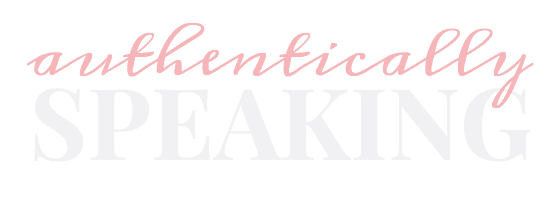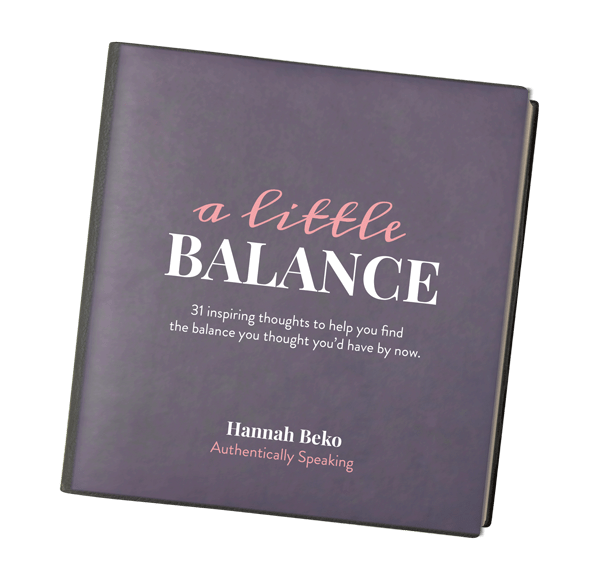Why is it important to have goals? And has it become a bit of a buzz word?
Many working environments have goals and targets. These are usually things given to us by our organisation or our bosses. Maybe we even have a hand in putting the figures together, but they are arrived at logically and rationally then set down on paper. They often don’t really mean a lot to us and this can make it really hard for us to try and achieve them. We’re running on pure willpower and pushing ourselves to do it.
These goals might not actually even be things that we truly want to achieve. We might have set them beacuse we think they’re what other people are doing, what we should be doing, or what we should’ve achieved by now.
I think often we find ourselves working towards goals that don’t really mean something to us and perhaps we haven’t given a lot of thought to them.
What is falling by the wayside at the same time, is actually thinking about how we want to live our lives, what we actually want to be achieving and what’s important to us.
So why it’s important to have some sort of personal vision for the future, some personal goals? Without them we are waking up every morning and going about our daily routine (whether that’s work or childcare etc) on autopilot, and that can be quite draining and ultimately not very fulfilling.
I love the analogy one of my mastermind sisters Marianne Page makes in her book “Simple Logical Repeatable”. Marianne says that without a goal, or a dream or a vision, we are just like a car driving around without the satnav programmed or without a map to hand. That’s fine for a Sunday drive. But in reality when we are getting into our car most days we want to know where we’re going, we want to know what the destination is. Going through our lives without a vision and without meaningful goals is like that car driving around aimlessly, unsure which direction to take next.
In contrast when we have some sort of vague idea of what our dreams or goals are, then even on a subconscious level without us realising it, every time there are decisions to be made in life, we will naturally take those decisions that take us a little closer to that dream or to that vision.
And one day you might just wake up and realise that you’ve achieved it.
Aside from the fact that having a goal or dreams or a plan, acts as your life satnav system, what other positives are there for having goals and dreams?
Apparently only around 1% of people know what they want from their life. If you had some sense of your dreams or your goals you would be in that 1%. As I’ve mentioned it makes everything in life that little bit easier if you know what you’re working towards, why you’re working so hard.
If you do spend a little bit of time thinking about what your goals are and get to the extent of writing something down, this could be on a post-it note if nothing else. By writing down your goals, you are 42% more likely to achieve them, that’s pretty impressive.
How can you identify what your vision or your goals are if you don’t already know?
I encourage you to spend a bit of time thinking about what your own personal version of success looks like. Try to step away from the influences of your peers, your colleagues or those around you, what your industry prescribes as what success looks like. And instead think about what success would mean to you.
What would make you feel happiest, healthiest, like you were most succeeding in your life and perhaps being a good role model to those around you. What would that look like?
In my career as a lawyer it’s very easy to see the path to success laid out in front of you, as I’m sure it is in many careers. Success looks like partnership, a certain sized house, certain type of car, holiday destinations, a six-figure salary. But once I’d ticked all of those boxes, and still didn’t feel particularly happy, and instead felt stressed out – I started to think about what my own personal version of success looked like. Right now it looks like doing work I love, producing an income that supports the lifestyle I want for my family, and spending the time I want to with my children.
What does your personal version of success look like?
What would you like your life to look like in one, three or five years time?
If you’re not sure where to start I’ve got a few exercises that I use in my workshops and with my coaching clients. You might want to try one of these:
1. Try writing about it.
Take your pen and notepad and ask yourself the question “what do I want my life to look like in….. years’ time”. Spend some time writing whatever comes into your head about what you want your life to look like, what do you want your work life to look like. The hours you’re working, where you work, what sort of work you’re doing and with who. What does your home life look like? Is there a charity or cause that is important to you that you want to be contributing to? Writing can be a really good process for accessing the subconscious part of our mind so we’re not just coming up with our goals and our dreams based on logical rational thought. Better instead to tap into our emotions and our underutilised intuition.
2. Vision Boarding.
Try creating a vision board as we did in one of my recent workshops. Take a piece of paper, find some magazines and flick through those magazines looking for images that speak to you. Maybe they stand out to you for some reason because there’s something on that image that you’d like to see in your life. Rip out those images, collate a pile and when you think you’ve got enough, stick them onto your vision board. You’ll produce a board that shows you what you want your life to look like in the future. You choose your timeframe. Keep your vision board somewhere handy or maybe a photograph of it on your phone so that you can check back in and see how many of those things you achieve as time passes by.
3. Daydreaming.
You can try a visualisation exercise – this is a really popular one with my clients. You will visualise your ideal working day by choosing a day around one year from now. Find a quiet spot where you won’t be interrupted for 5-10 minutes. Sit comfortably, take a deep breath in and out a couple of times and then when you’re ready, start to imagine what your ideal day would look like – starting from the top, the moment you wake up on that day. What do your surroundings look like? Where are you? How are you feeling? What does your morning routine look like on your ideal day? Then go through lunchtime, into the afternoon. Daydream yourself all the way through your ideal day to the evening. At bedtime on your ideal day, you’re going to look back on your day and ask yourself what you grateful for on that day and what do you look forward to the next day? This is a fantastic exercise and at the end of this post I will share with you how you can find my recorded visualisation exercise where I talk you through the above.
I’ve given you a few different ways that you can start to think about your future. If you’re interested in coming along to one of my Goal Setting and Planning Workshops in the future, do join my community to receive updates.
If you do nothing else after reading this, I encourage you to just spend a couple of minutes thinking about your future and about what you’d really like to see in your life in the coming few years.
Happy daydreaming!
Writing down your goals makes you 42% more likely to achieve them!
I’ve put together a short mini training on discovering what’s important to you (your life values) and a recorded “perfect day” visualisation. Please visit this link to listen to the mini training.
I’d love to know what you think, please feel free to drop me an email to hannah@authenticallyspeaking.co.uk.
Hannah x

